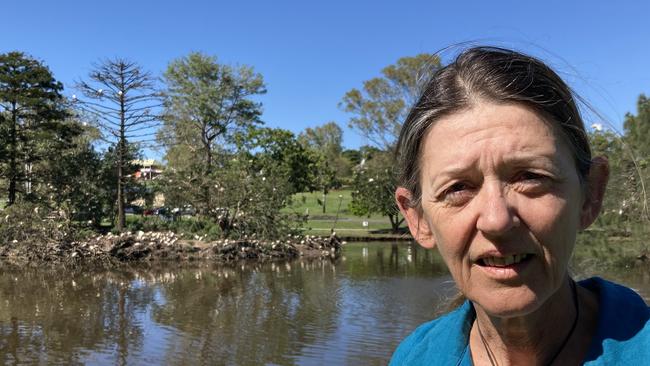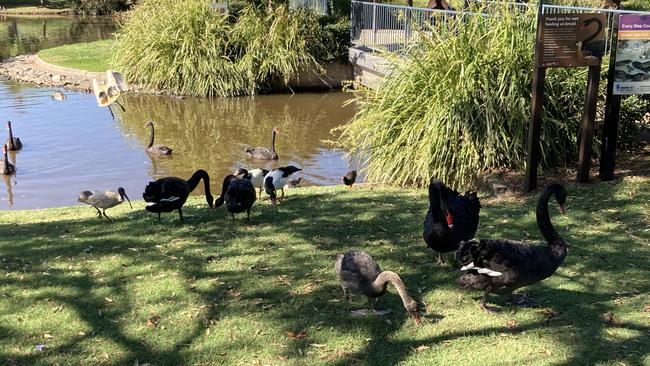Twinnies Rescue warn of Lake Alford toxic outbreak as 38 birds die
Overcrowding at a popular birdlife sanctuary, playground and travel stop on the Bruce Highway has lead to a deadly outbreak. Watch the video:
Gympie
Don't miss out on the headlines from Gympie. Followed categories will be added to My News.
Wildlife carers are sounding the alarm on a botulism outbreak at the popular Lake Alford Duck Ponds on the southern outskirts of Gympie, which has killed more than three dozen birds in the past month.
Twinnies Pelican and Seabird Rescue’s Helen Power said the toxic outbreak was “the worst we’ve seen it” in the refuge’s eight years tending to the animals at the popular Monkland park.
“We’ve never had the problem that we’re having now,” Ms Power said.
Police stations ‘under stress’ as MP reveals dire need for top cops
Mystery killer swallowing Mary River’s ‘bum breathing’ turtles
Janine Graham, a daily visitor to the duckponds in the past five years who volunteers with Twinnies, said she had recorded 38 dead animals since September 26, 2022.
Most were ibises, although a cygnet swan, a young magpie goose and a Pacific black duck now counted among the dead wildlife.
“There was one day here that, dead or alive, 12 swans left the duck pond,” Ms Graham said.

She said botulism poisoning caused weaknesses in the animals’ limbs, acting “like a paralysis tick”.
“They die of organ failure, or they go back into the water and drown because they can’t keep their head up,” she said.
Ms Power, who had spoken with environmental groups and Gympie Regional Council pinpointed overpopulation as the culprit behind the outbreak.
There were several solutions, including one she said needed to be taken on board.
“People have to stop feeding them,” she said.
“That is our number one challenge.”
Nests needed to be broken up at the park, more plants were needed around the edges of the ponds, and more proactive policing of one other issue plaguing the park was necessary too.

“Dob in somebody who is dumping in domesticated geese,” Ms Power said.
Without these interventions, then the only option left might be the one no-one wants: culling.
The overpopulation led to more bird faeces in the water and dead birds polluting it.
Ms Graham said people needed to be aware of the potential exposure risk through contamination of open wounds or ingestion, even if not deliberate.
“I’ve seen people who have lost phones dive in,” Ms Graham said.
She said remediation work was needed at other parts of the park, including one bare patch at the north-eastern side of the central pond which became a stagnant pool when it rained.
Ms Power said she did not want to level any criticism at authorities, who were working on a solution.
But if the outbreak was not addressed, Ms Graham and Ms Power agreed the future of the park as a popular stopover or recreational area was at significant risk.
“This park means an awful lot to the local community... it’s not nice seeing (birds) sick and dying,” Ms Graham said,
“Gympie is very lucky to have this,” Ms Power said.





